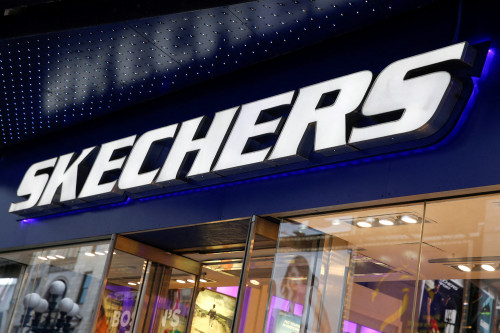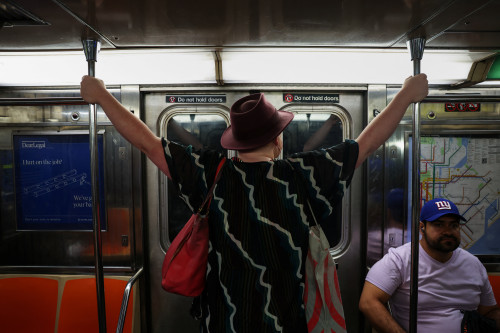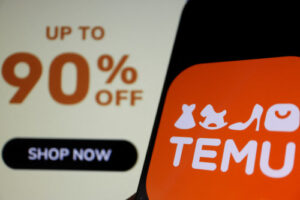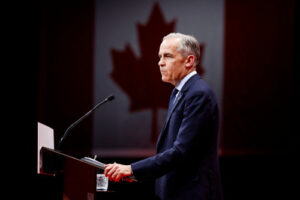By Abigail Summerville
NEW YORK (Reuters) -Boards and the owners of retailers whose shares have been pummeled by U.S. President Donald Trump’s trade war are increasingly warming to offers to sell – and to escape the market chaos that has caused company valuations to seesaw in recent months.
Following sneaker-maker Skechers’ take-private deal earlier this month, dealmakers expect other retailers to clinch their own deals to go private in the near-term, especially if Trump does not soon settle on a more stable trade policy, according to interviews with 10 investment bankers and M&A lawyers.
Retailers in particular have been hard-hit by Trump’s rapidly shifting tariff announcements, and are frustrated with an inability to provide earnings guidance.
Skechers was in talks with investment firm 3G Capital long before its market value began a precipitous drop from an all-time high of around $11.85 billion on January 30 – the day before the White House announced its first round of tariffs against China – according to two people familiar with the matter.
The flood of tariff announcements beat the company’s value down to about $7.4 billion by the end of April. Skechers, which manufactures most of its goods in China and Vietnam, pulled its 2025 earnings guidance around that time, citing “macroeconomic uncertainty stemming from global trade policies.”
Skechers is majority-owned by the Greenberg family. The tariff turmoil made the idea of going private all the more attractive to the Greenbergs, said the sources, who asked not to be named because the negotiations were private.
The company announced plans on May 5 to sell to 3G Capital in a so-called take-private deal for about $9.4 billion. Selling to a privately held firm like 3G removes the company’s shares from public exchanges, which effectively shields its earnings from public scrutiny and protects its valuation from unpredictable market swings.
Skechers declined to comment.
Other retailers are already in talks to sell to investment firms and other companies, the sources said.
“The breakneck pace of the instability, the volatility, and the macro changes have made board members start thinking, ‘Would it be better to manage this business in private where we don’t have to report out to the street with the same quarterly cadence and where we can control operational, financial, and capital allocation decisions in private?’” said Kurt Anthony, head of consumer and retail investment banking for the Americas at UBS.
TAKE-PRIVATE TARGETS
Few industries have been hit harder by Trump’s tariffs than retailers, many of which manufacture most of their goods overseas and have had to pull earnings guidance amid fickle foreign policy. After de-escalating his trade war, Trump on Friday levied fresh threats against Apple and the European Union, sending markets that had mostly recovered from his initial trade moves reeling once again. The S&P Retail Select Industry index had fallen by 6% year-to-date as of Friday’s market close, while the broader S&P 500 Index had fallen 1.1% in the same period.
“There are a lot of CEOs that reached out to me and said ‘I’m tired, I love what I do, but maybe it’s time I go private,’” said Jamie Salter, CEO of Authentic Brands Group. The company, which owns the intellectual property of several apparel companies including Reebok and Champion, acquired Dockers’ IP from Levi’s last week. “I think you’re going to see good companies either stay private, or go private.”
And companies where a family – as in the case of Skechers – or a single investor has a controlling stake can sign these deals faster and more easily than those that need broad shareholder approval.
Investment bankers and advisers pointed to other retailers with similar ownership structures as potential take-private targets: Under Armour where founder and CEO Kevin Plank has majority voting control, Columbia Sportswear Company where chairman and CEO Timothy Boyle and his family are the biggest shareholders, and Birkenstock with private equity firm L Catterton holding a majority stake. Under Armour, Columbia, Birkenstock and L Catterton did not respond to requests for comment.
In Skechers’ case, navigating the market uncertainty in private made sense to father-son duo Robert Greenberg, chairman and CEO, and Michael Greenberg, president, said the two people familiar with the family’s thinking. And a buyer like 3G, which has held some investments for over a decade, can afford to ride out short-term tariff and market volatility compared with traditional private equity firms that tend to hold their investments for a handful of years, the people said.
(Reporting by Abigail Summerville in New York; Additional reporting by Helen Reid in London; Editing by Matthew Lewis)






